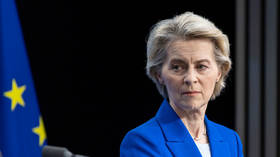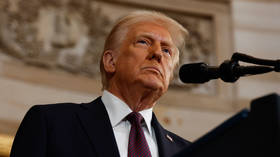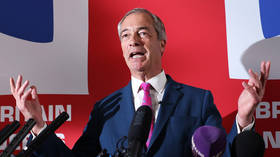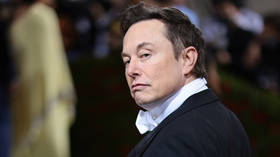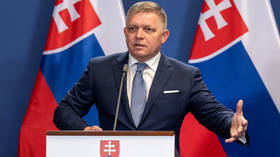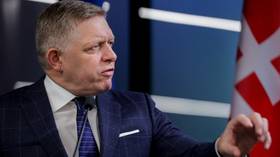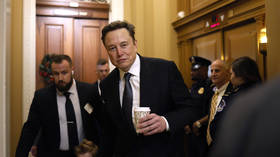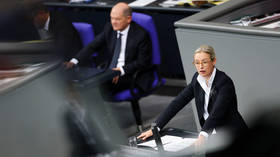For the first time, the Reform UK Party has surpassed the oldest political party in membership numbers, becoming the second largest party in the UK. Reform UK now has more members than the 131,680 Conservative base.
Reform UK had merely 40,000 members in June, when Farage returned as its leader.
The Conservative Party has also seen “a number of significant Conservative defections to its ranks.” That’s because the Conservatives went too far left under the misguided idea that it would gain support from more centrist liberals. The left has become so radical and woke that many Western voters are finally waking up to the fact that Western countries are losing their freedoms, its collective common sense, and the rule of law.
There’s still a long way to go in Britain. Labour membership was at 366,604 in March 2024; since then, however, its leader Keir Starmer has become “more unpopular after five months than any other PM in over 40 years.”
Reform membership overtakes Conservative Party
membership for first time
by Millie Cooke, Independent, December 26, 2024:
Membership of Reform UK has surpassed that of the Conservatives, Nigel Farage’s party has claimed, making it the second-largest political party in the UK.
A digital counter on the Reform website showed a membership tally before lunchtime on Boxing Day ticking past the 131,680 figure declared by the Conservative Party during its leadership election earlier this year.
Mr Farage said it was a “historic moment”, as he posted on X: “The youngest political party in British politics has just overtaken the oldest political party in the world.
“Reform UK are now the real opposition.”…
=============================================================================================
Musk’s big bet: Could Germans kick out
their liberal elites?
Disillusionment and economic woes are transforming attitudes
in the EU’s traditional powerhouse
By Nadezhda Romanenko, political analyst
Donald Trump will soon return to the White House, and Elon Musk – the tech billionaire and serial disruptor – regularly weighs in on European politics from across the Atlantic. Meanwhile, in Germany, public dissatisfaction with the political establishment has reached fever pitch.
As Europe’s largest economy grapples with inflation, high energy costs, and a general sense that “liberal elites” have grown out of touch, more radical parties on both the right and left are seizing the moment. The Alternative for Germany (AfD) is gaining ground almost daily, wooing voters who feel abandoned by the mainstream, while Sahra Wagenknecht, a controversial leftist, is forming a new party that could siphon off working-class support from traditional parties.
With these developments, Germany – once the epitome of stability – now stands on the verge of a political earthquake whose tremors may be felt throughout the European Union.
A major factor behind this upheaval is Germany’s stuttering economy. After decades of relying on relatively cheap Russian gas to fuel its industries and heat its homes, the sudden cut-off has left the country scrambling. Energy bills have skyrocketed, hitting vulnerable households the hardest, and making everyday life more expensive for everyone. Inflation, partially exacerbated by global trends, has eroded purchasing power and confidence in the traditional parties that were expected to safeguard economic prosperity. As factory orders dip and small businesses struggle to stay afloat, voters are growing frustrated – and the AfD has proven adept at channeling that frustration into votes.
But the AfD is not the only beneficiary of this climate of discontent. Wagenknecht, who made her name in the Left Party (Die Linke) before breaking away, is set on pulling disillusioned voters from across the political spectrum. Fiercely critical of deregulated markets and neoliberal orthodoxies, she accuses Germany’s mainstream leaders of abandoning true social justice in favor of what she sees as global corporate interests. For some on the left, who feel the Social Democrats and the Greens have lost touch with working-class realities, her new party offers a tantalizing alternative. By merging left-populist rhetoric with sharp critiques of rising living costs, Wagenknecht might peel away the very voters that kept the center-left afloat for years.
Friedrich Merz, who leads the center-right Christian Democratic Union (CDU) and is often seen as Chancellor Olaf Scholz’s principal rival, faces headwinds from unexpected quarters. Musk’s criticism of Merz has drawn attention to a rift between conventional conservatism and the disruptive style championed by a new generation of influential voices. Worse for Merz, Trump’s return to the presidency in the United States signals that a more populist brand of politics may gain transatlantic support. During his first term, Trump’s ambassador to Germany, Richard Grenell, made headlines by engaging openly with right-leaning German politicians, including members of the AfD. Now, with a second Trump administration, Washington could well encourage a similar or even more robust alignment with populist forces in Berlin.
This newfound enthusiasm for anti-establishment politics also points to a broader pattern across Europe, where trust in traditional parties has been waning. For years, Germany seemed immune to the populist waves that buffeted Italy, France, and other EU states. No longer. Should the AfD continue its ascent – and if Wagenknecht’s party gains real traction – a once-placid two- or three-party system might fracture, making future coalitions messy at best. Already, local and regional elections have hinted at the extent of voter dissatisfaction. On the national stage, that frustration could crystalize into a governing challenge the likes of which Berlin hasn’t seen in decades.
Nor can any of this be separated from Germany’s broader role in Europe. As the bloc’s central economic engine, Germany largely sets the tone for EU policy. A dramatic rightward shift, or even a strong left-populist surge, would ripple through Brussels. Questions of migration, defense policy, and EU fiscal rules might be renegotiated under a less europhile coalition. Countries that share more conservative or nationalist leanings could feel emboldened, while those favoring greater integration or progressive reforms might be sidelined.
In short, Germany’s political shift is a wake-up call to all of Europe: ignoring the grievances of voters on both ends of the spectrum comes at a price. If mainstream elites continue to champion broad liberal agendas without addressing concrete problems – such as ballooning energy bills and the loss of stable employment—more radical alternatives will claim their slice of the political pie. Whether that slice comes from the right, the left, or a combination of both, the result is likely to be a more fragmented, unpredictable Germany. And with Trump soon to be in the White House again and Musk’s disruptive influence seeping into every corner of public discourse, the odds of a return to centrist predictability appear slimmer by the day.
=============================================================================================
EU states seek to protect Russian gas flow
despite Ukrainian threat – Bloomberg
Central European nations are weighing options to secure energy supplies before a transit deal between Moscow and Kiev expires
Countries in central and southern Europe are exploring solutions to ensure the continued flow of Russian natural gas, as a key transit agreement between Russia and Ukraine is set to expire on December 31, Bloomberg has reported, citing sources.
Kiev has refused to extend the agreement, citing ongoing tensions and unresolved disputes with Moscow.
Slovakia, Hungary, Austria and Italy are reportedly pursuing alternative strategies to avoid disruptions to their gas supplies. Among the options considered is a commercial agreement that bypasses the need for a renewed intergovernmental deal between Kiev and Moscow, Bloomberg wrote in a report on Saturday.
This could involve Slovakia and other Central European countries striking direct contracts with Russian energy giant Gazprom, ensuring uninterrupted gas flows despite Ukraine's objections.
Slovakia’s state gas utility, Slovenský Plynárenský Priemysel AS (SPP), is also in discussions with Azerbaijan’s state-owned oil company SOCAR. According to reports, one potential solution could involve a gas swap between SOCAR and Gazprom, where the Azeri company would purchase equivalent volumes of Russian gas to supply European buyers.
Azerbaijan’s gas exports already reach several EU countries through the Southern Gas Corridor, an infrastructure project designed to reduce dependence on Russian gas. The strategy was adopted by the EU following the escalation of the Ukraine conflict in 2022.
Hungarian Prime Minister Viktor Orban has also proposed moving the location of Russian gas sales to the physical border between Russia and Ukraine, which would transfer gas ownership to European buyers and oblige Kiev to ensure transit under its free-trade agreement with the EU, Bloomberg wrote, citing persons familiar with the matter.
Last week, Russian President Vladimir Putin acknowledged that various proposals have been discussed, involving Hungary, Slovakia, Türkiye, or Azerbaijan. He noted, however, that any such arrangement would be difficult to enact because of Gazprom’s long-term contracts.
Ukraine is punishing Europe by banning the transit of Russian gas, which will become more expensive, the Russian leader argued.
Moscow has also insisted that it’s ready to continue supplying natural gas to the EU.
Although only about 5% of the EU’s total gas supply now transits through Ukraine, the route remains vital for landlocked countries in Central and Eastern Europe. Since the start of the Ukraine conflict in 2022, the EU has sought to reduce its reliance on Russian gas, shifting toward alternatives such as liquefied natural gas (LNG) and increased imports from Azerbaijan via the Southern Gas Corridor.
Before February 2022, Russia was the bloc’s top gas supplier, accounting for more than 40% of its imports. Last year, Russian gas made up around 8% of EU imports.

Top German newspaper editor quits over Musk op-ed
The Tesla and SpaceX owner penned an article praising
the anti-immigration AfD party
The opinion editor at Germany’s leading newspaper Die Welt has resigned over a decision to publish an op-ed by Elon Musk, in which he defended the anti-immigration Alternative for Germany (AfD) party.
“I have always enjoyed running the opinion pages of Welt and Welt am Sonntag. Today, an article written by Elon Musk appeared in Welt am Sonntag. I handed in my resignation yesterday, after it went to print,” Eva Marie Kogel wrote on X.
The billionaire owner of SpaceX, Tesla and X (formerly Twitter) wrote the article after praising the AfD on social media. In his op-ed, the close ally of US President-elect Donald Trump hailed the AfD as “the last spark of hope” for Germany. The billionaire insisted that its “pragmatic” approach will usher in a revival of the country, while arguing that other parties are out of touch with regular people.
“The traditional parties have failed Germany. Their policies have led to economic stagnation, social unrest and an erosion of national identity,” Musk wrote. “Despite being far-right, AfD represents political realism that resonates with many Germans who feel that their concerns are being ignored by the establishment.”
Musk went on to rebuff criticism against the AfD, stating that “their portrayal as far-right is clearly false.”
According to German media, the publication of the op-ed sparked intense debate among the staff at Die Welt, with some viewing it as meddling in the snap parliamentary election, which is scheduled for February 2025.
Jan Philipp Burgard, Die Welt’s senior reporter, penned a rebuttal to Musk, calling his praise of AfD “fatally flawed” and arguing that it was “a big mistake” not to label the party as far-right.
Another Die Welt journalist, Franziska Zimmerer, insisted in her own op-ed that the text written by Musk “should not have appeared” in the paper. “Election appeals, no matter the party, have no place in independent media,” she wrote.
Founded in 2013, AfD has been pushing for a tightening of asylum laws and fighting organized crime and Islamic extremism. The party has become more popular in recent years, winning its first regional election in Thuringia in September.
The 2025 election was called after the ruling three-party coalition collapsed due to a budget dispute.
============================================================================================

